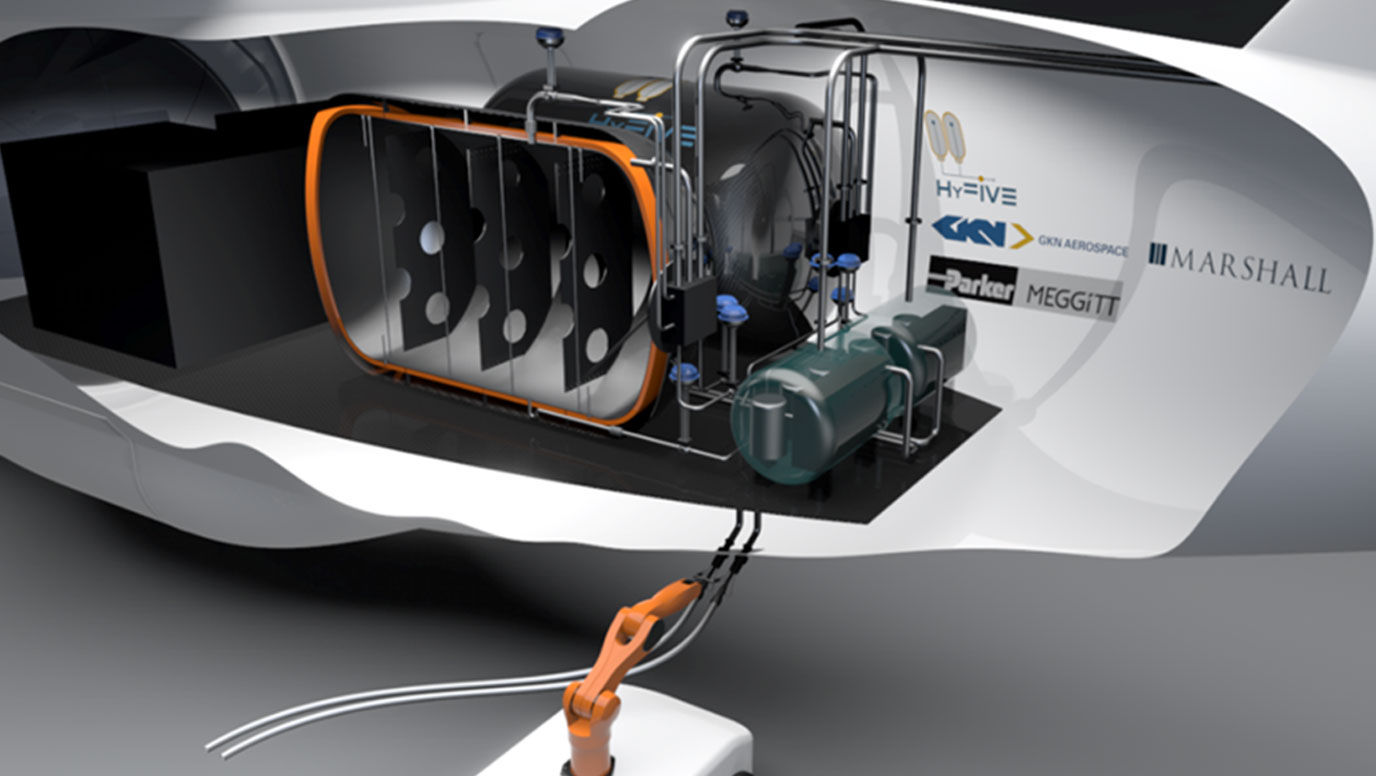Marshall helps global partners drive £40m hydrogen revolution

HyFIVE combines the expertise of industry partners Marshall, GKN Aerospace and Parker Meggitt, while specialised R & D will be conducted by the Universities of Manchester, Bath and Cardiff.
Unveiled in Budget week by Chancellor Jeremy Hunt, the consortium will launch with initial funding of nearly £40m with an investment of £17m from industry matched by £20m from government.
The project is supported by the ATI Programme – a partnership between the Department for Business and Trade, Aerospace Technology Institute and Innovate UK.
Marshall CEO Kathy Jenkins said: “HyFIVE is a true UK powerhouse, bringing together industry leaders with a track record of certifying new aerospace technologies and the industrial scale to successfully deliver to market.
“Combining our respective strengths and drawing on support from some of the world’s top R & D centres will result in a consortium that is truly greater than the sum of its parts.”
Industry Minister Nusrat Ghani said: “This is another win for our world-leading aerospace sector, cementing the UK’s position at the forefront of zero emissions technology and taking the UK to new heights in the pursuit of cleaner, greener air travel.
“This announcement is the latest in a long line of wins for UK aviation and builds on the success of the £4.5 billion investment as part of our Advanced Manufacturing Plan and launch of our Hydrogen Taskforce, placing UK expertise at the cutting edge of hydrogen fuel innovation.”
The overarching objective of the HyFIVE consortium is to develop, test and validate a modular, scalable cryogenic hydrogen fuel system architecture that is suitable for multiple aircraft classes and compatible with either hydrogen electric propulsion or hydrogen combustion powertrains.
Specifically, the collaboration will cover five key aspects of technology development for hydrogen fuel systems: storage, conveyance, indication, fuelling and venting.
The HyFIVE consortium members have defined a full technical programme spanning several years, starting with initial architecture development and supplier engagement and running all the way through to ground testing and final design review for the integrated fuel system.
By 2027 the consortium plans to have:-
• Developed and validated an integrated family of mature fuel system technologies and capabilities conducive to certification
• Conducted ground demonstration of an integrated fuel system encompassing the storage, conveyance, indication, venting and fuelling systems
• Opened a range of flight demonstration and exploitation paths with prospective customers
• Developed a customer-ready supply chain and industrialisation strategy.
Timely achievement of these objectives will support the successful introduction of a new generation of zero emissions aircraft in the 2030s.
The HyFIVE collaboration is structured to take advantage of each industry partner’s unique capabilities. Marshall will bring to the consortium its expertise in complex system design, integration and certification, honed through decades of delivering aircraft fuel systems and complex aircraft modification projects.
GKN Aerospace, which specialises in the design, manufacture and assembly of aircraft structures, engine components and systems, will contribute its industry-leading advanced materials and hydrogen cryogenic system optimisation knowhow.
Parker Meggitt will lead on aspects of the collaboration related to motion, control and thermal technologies, drawing on its specialised knowledge of fuel systems, electromechanical actuation and thermal management.
The consortium’s academic partners have been chosen for their world-leading research capabilities and advanced testing facilities in areas such as hydrogen-electric propulsion, cryogenic applications, power transmission, turbomachinery and next-generation material development.
The project will also develop a supply chain of SMEs to undertake more specialised challenges around testing, engineering support and component development, supporting UK industry while also laying the groundwork for future supply chain capability development.
Hydrogen propulsion is considered a critical pathway for the aviation industry to achieve its ambitious goal of net zero emissions by 2050. To that end, in 2021 the Government unveiled its Hydrogen Strategy, which takes a holistic approach to developing a thriving hydrogen sector. The strategy targets aviation as a key sector for decarbonisation from the 2030s onward.


